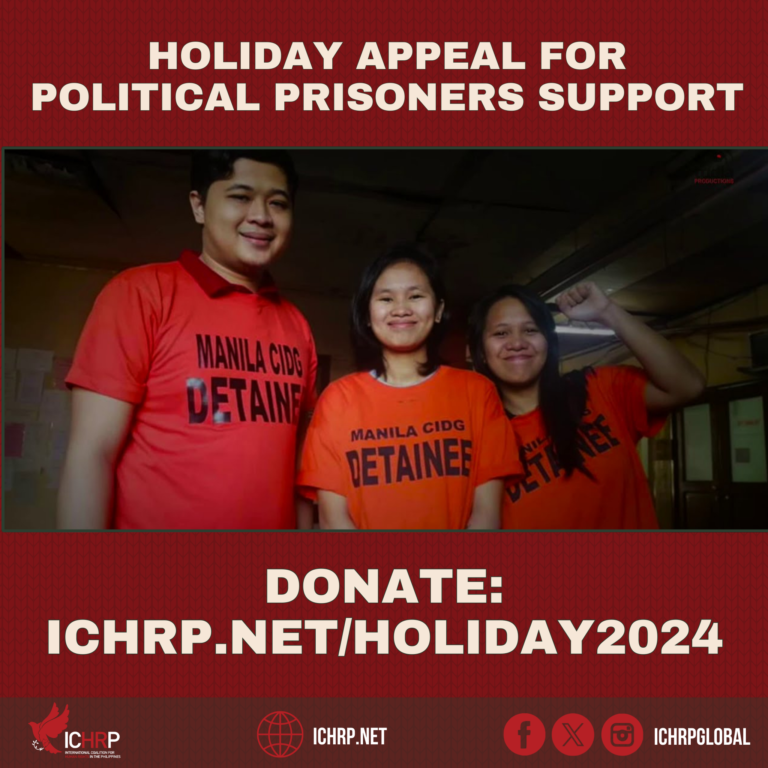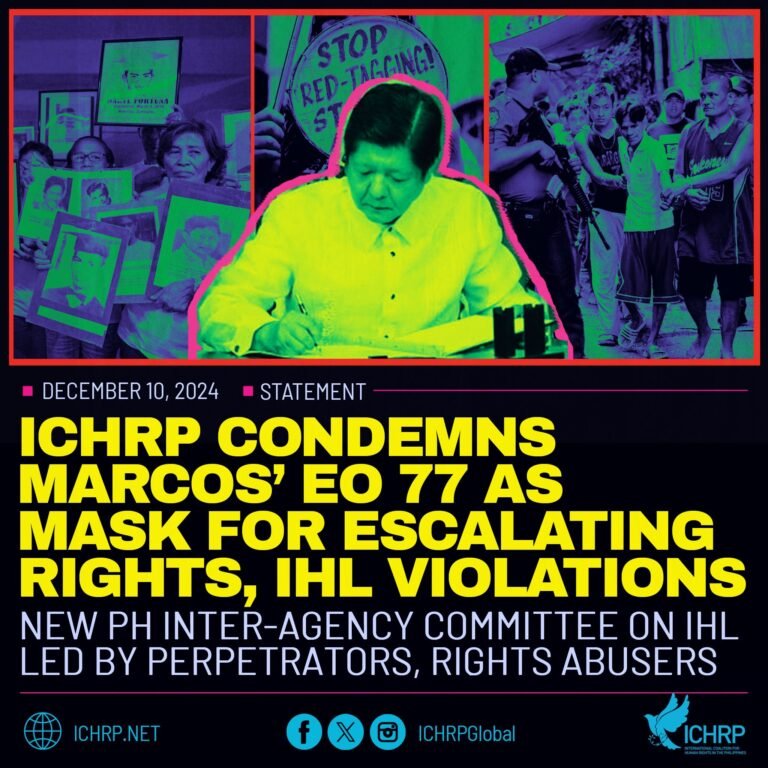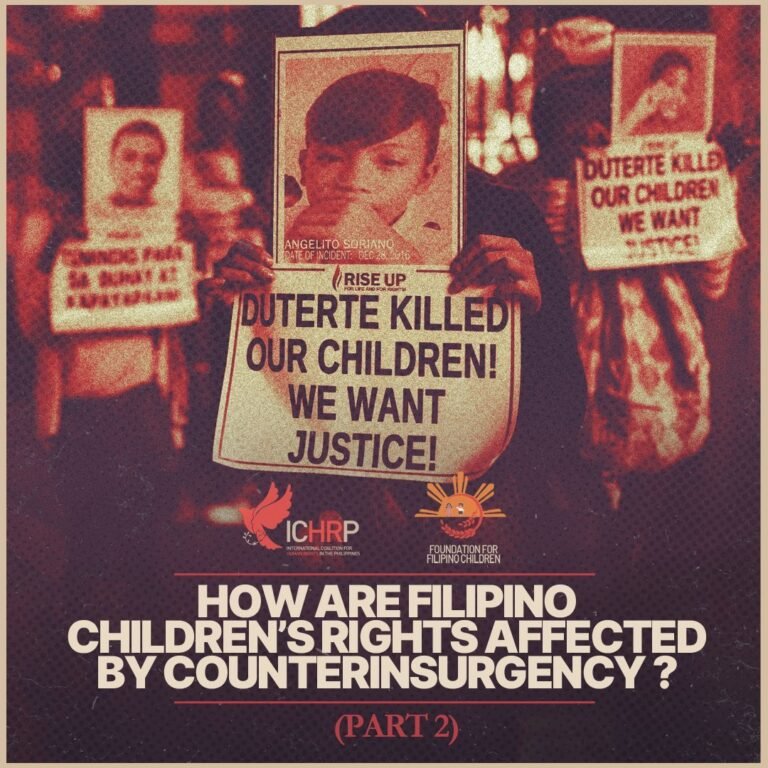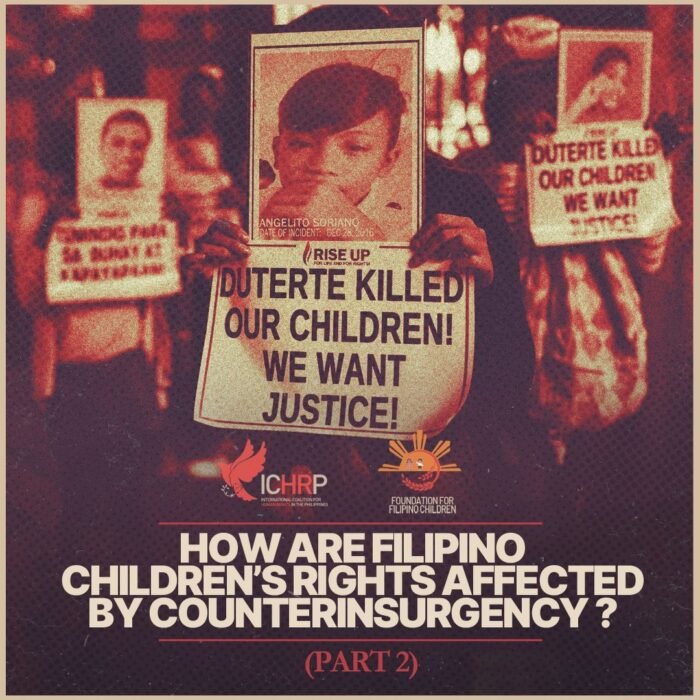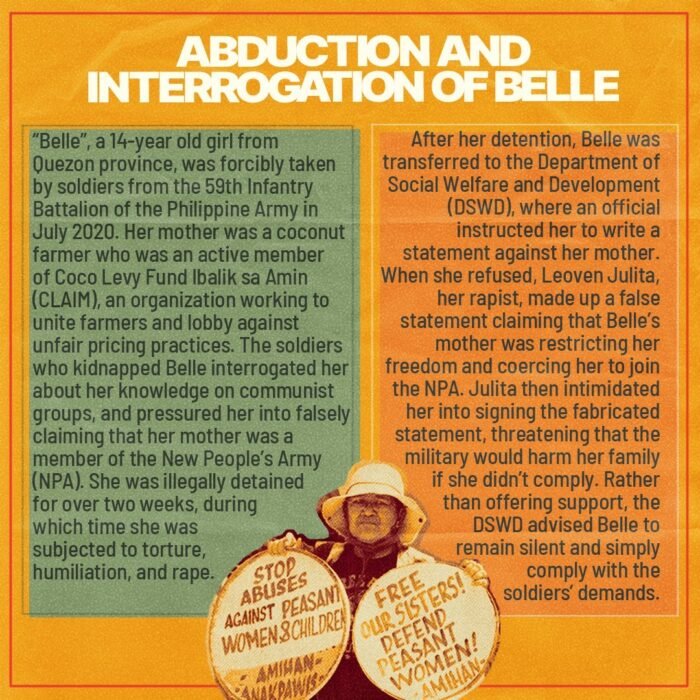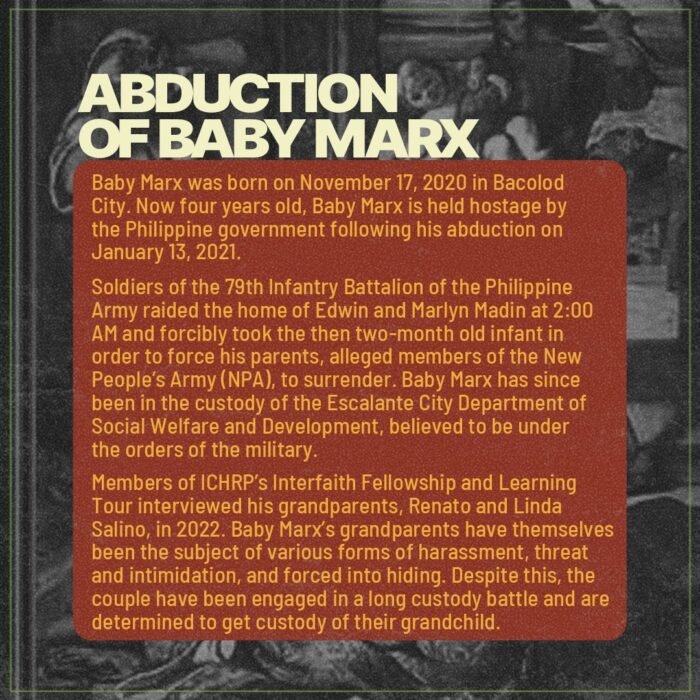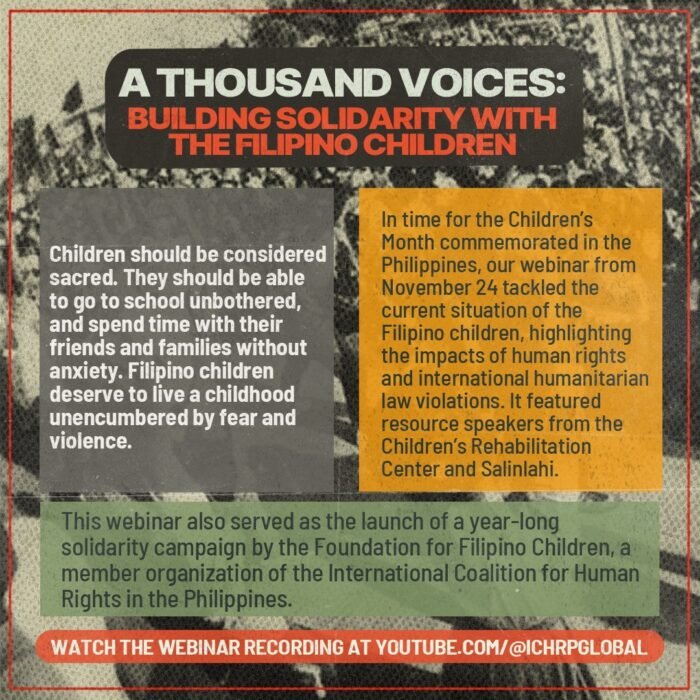New PH inter-agency committee on IHL led by perpetrators, rights abusers
Press statement
December 10, 2024
On International Human Rights Day, the International Coalition for Human Rights in the Philippines (ICHRP) assailed Executive Order (EO) 77, calling it a superficial response to the Marcos Jr administration’s worsening human rights record. The EO, which establishes an inter-agency committee on International Humanitarian Law (IHL), was criticized as an attempt to mask the government’s failure to address the root causes of widespread abuses.
“EO 77 is performative—a desperate attempt to save face before the international community,” said Peter Murphy, Chairperson of ICHRP. “While the Marcos Jr administration parades this executive order as progress, it continues to enforce policies that blatantly violate basic freedoms and international humanitarian standards.”
Among these repressive policies are the continuation of the violent drug war and counterinsurgency programs, which have resulted in significant human rights violations.
Data from the University of the Philippines revealed that more than 800 drug-related killings have occurred since the beginning of Marcos Jr’s term. Similarly, according to local rights group Karapatan, the counterinsurgency program of the Marcos administration has resulted in a staggering number of human rights and International Humanitarian Law (IHL) violations since he came to power. These include 119 extrajudicial killings, 76 attempted extrajudicial killings, and 14 enforced disappearances. Furthermore, 43,582 individuals have been forced to evacuate their homes, while 63,380 have been victims of indiscriminate gunfire, and 46,921 have been affected by bombings—all of which are linked to the government’s intensified counterinsurgency efforts.
The most recent of the 119 political killings under the US-backed counterinsurgency program is the murder of Jerick Jugal, a civilian and sole breadwinner for his family in Catubig, Northern Samar, Central Philippines. On November 5, 2024, the Armed Forces of the Philippines (AFP) falsely claimed Jugal was a rebel killed in an encounter. Witnesses, however, confirmed there was no clash, calling it a targeted killing and a war crime, emblematic of the systemic abuses under the Marcos government.
ICHRP strongly condemns the arrest of 74-year-old activist Tomas Dominado, a martial law survivor detained just days before Human Rights Day on false charges of murder and rebellion. Despite being bedridden from a massive stroke and in need of constant care, Dominado is imprisoned alongside his caregiver, who faces additional charges under the Anti-Terror Law. His case highlights the troubling reality of political prisoners under the Marcos administration, where 757 individuals, including 97 sick and 103 elderly detainees, remain unjustly incarcerated.
IHL inter-agency committee led by enablers, perpetrators
ICHRP noted with alarm that EO 77 tasks the very agencies implicated in the violations with leading the inter-agency committee on IHL. The Department of National Defense (DND) will co-chair the committee, which will also include notorious enforcement agencies such as the Department of the Interior and Local Government, the Armed Forces of the Philippines (AFP), and the Philippine National Police.
“This raises serious concerns about the credibility and sincerity of the initiative. Through their involvement in counterinsurgency operations and the facilitation of militarized policies, these agencies are widely seen as enablers and perpetrators of the same violations they now claim to address,” Murphy claims.
ICHRP highlighted how these policies perpetuate a climate of fear and repression, particularly through mechanisms such as the National Task Force to End Local Communist Armed Conflict (NTF-ELCAC). The task force, widely criticized for red-tagging and harassment of activists, journalists, and human rights defenders, blurs the distinction between civilians and combatants—an egregious violation of IHL. UN Special Rapporteur Irene Khan has also raised alarm over these practices, emphasizing their devastating impact on freedom of expression and democratic space in the country.
“The EO 77 fails to address the systemic injustices and lack of accountability that fuel these abuses. Instead of putting an end to the killings and IHL violations, the administration offers only token gestures to deflect international scrutiny,” says Murphy.
This 76th International Human Rights Day, ICHRP calls on the government to immediately end its lethal policies and hold perpetrators accountable. It also reaffirms its solidarity with the Filipino people in their struggle for justice and genuine freedom, urging both local and international communities to intensify efforts to hold the US-backed Marcos administration accountable.
###




